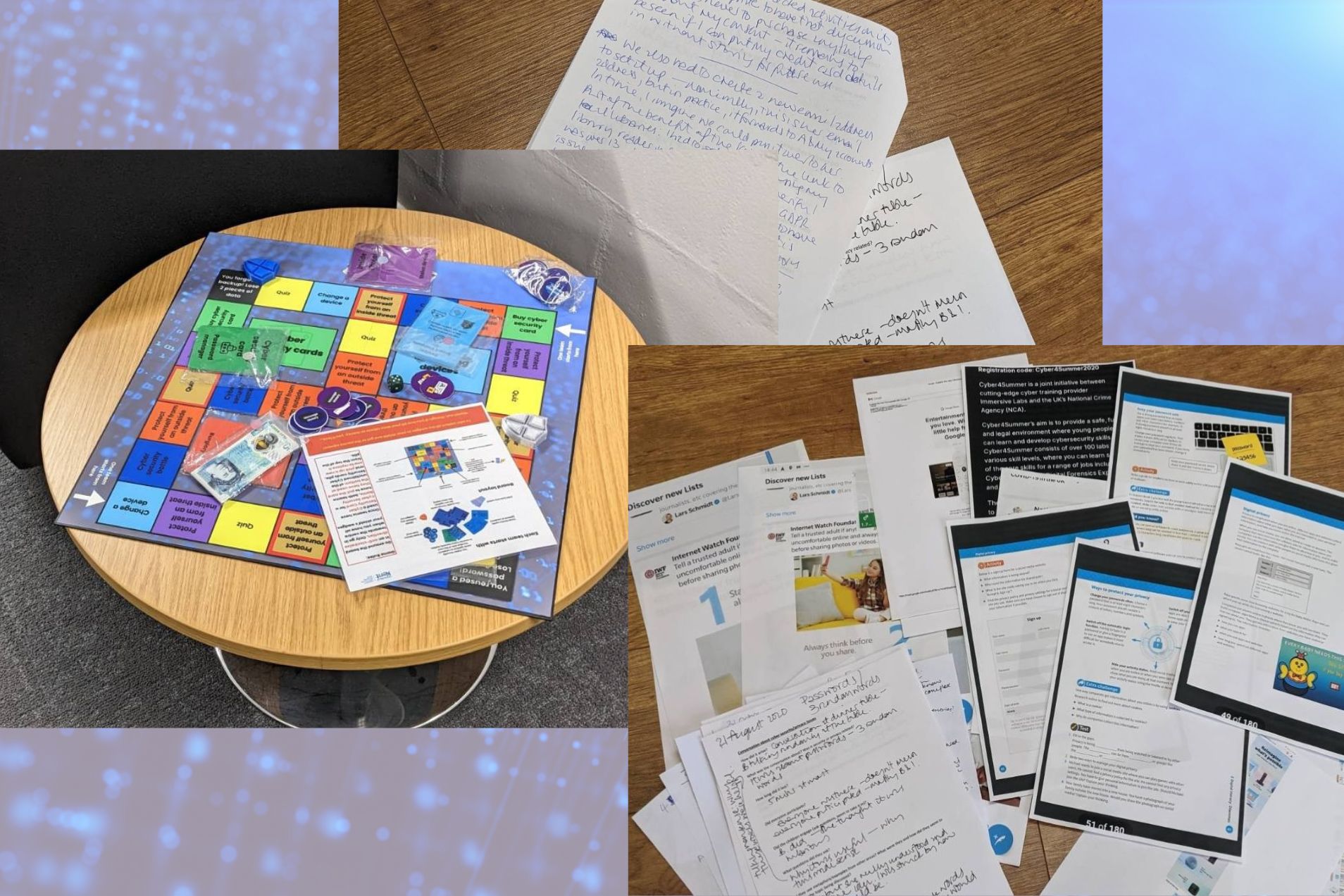On Wednesday 2nd August 2023, Sarah Turner, a PhD student of the School of Computing and iCSS, defended her PhD thesis and passed the viva subject to minor corrections.
Sarah’s external examiners were Professor Lynne Coventry from the Abertay University in the UK and Dr Simon Parkin from the Technische Universiteit Delft (TU-Delft) in the Netherlands. She was supervised by Dr Jason Nurse (iCSS Public Engagement Lead) as the principal supervisor and Professor Shujun Li (iCSS Director) as the secondary supervisor. Her study was funded by the National Cyber Security Centre (NCSC, part of GCHQ) via a competitive process, leading to the project “Approaches and Technologies to Support Home Users’ Engagement with Cyber Security” (01/2020-12/2022) with an funding amount of £115,153, which covered both a stipend and some research costs.
Her thesis is entitled “Approaches to support families’ engagement with cyber security for home IoT devices”. The thesis explored the levels of awareness that UK-based families exhibited in relation to the cyber security requirements of home IoT devices use, and when the awareness was found to be very low, why this was the case. The final piece of research used this information to produce a board game to facilitate learning for participant family groups around how they might improve their cyber security behaviours in relation to their home IoT use. Some of Sarah’s published work is as follows:
- Sarah Turner, Jason R.C. Nurse (2023) Written evidence submitted to the UK Government’s Department for Culture Media and Sport Committee’s inquiry Connected tech: smart or sinister?
- Sarah Turner, Nandita Pattnaik, Jason R. C. Nurse and Shujun Li (2022) “You just assume it is in there, I guess”: Understanding UK families’ application and knowledge of smart home cyber security. Proceedings of the ACM on Human-Computer Interaction (PACMHCI), 6(CSCW2):269, 34 pages, ACM, presented at CSCW 2022 (25th ACM Conference on Computer-Supported Cooperative Work and Social Computing)
- Sarah Turner, Jason R. C. Nurse and Shujun Li (2022) “It was hard to find the words”: Using an Autoethnographic Diary Study to Understand the Difficulties of Smart Home Cyber Security Practices. In Extended Abstracts of the 2022 CHI Conference on Human Factors in Computing Systems, Article Number 34, 8 pages, ACM, 2022
- Sarah Turner, Jason R. C. Nurse and Shujun Li (2021) When Googling It Doesn’t Work: The Challenge of Finding Security Advice for Smart Home Devices. In Human Aspects of Information Security and Assurance: 15th IFIP WG 11.12 International Symposium, HAISA 2021, Virtual Event, July 7–9, 2021, Proceedings, IFIP Advances in Information and Communication Technology, Volume 613, pp. 115-126, Springer Nature, 2021
In addition to her PhD study, Sarah was also an active contributor to iCSS’s school outreach activities. Particularly, she helped deliver several cyber security and online safety sessions to pupils of St Edmund’s School Canterbury at the 2022 Safer Internet Day and also pupils from multiple local schools coming to attend the Kent Youth Summit 2022. Experience gained from such activities have led to an article on a pupil-facing magazine Futurum Careers, jointly with three other iCSS members including Professor Shujun Li, Dr Rahime Belen-Saglam and Dr Virginia Franqueira:
- Shujun Li, Sarah Turner, Rahime Belen-Saglam and Virginia N. L. Franqueira (2023) Online battles: combatting false information and reducing online risks. Futurum Careers, Issue 18, Part I, pp. 12-15, 2023, DOI:33424/FUTURUM302
Sarah said, “It has been a tremendous privilege to be able to undertake research on a topic that will no doubt be extremely important in all of our lives in the years to come, as connected technologies become embedded in our homes and everyday lives. I am delighted that I have been able to work with a large number of families in the UK to further the understanding of how and why they struggle to engage with cyber security when it comes to the devices in their homes, and how that could be changed.”
Dr Jason Nurse, Sarah’s principal supervisor, said, “Sarah’s doctorate has explored the very real problem of how families engage with cyber security in home IoT devices. This research has already had an academic and policy impact, and the game that has been created stands to really help parents and kids in their day-to-day actions and conversations about cyber security. As more homes integrate smart devices, the value of this research will increase. I’m glad we were able to work together and look forward to the impact of this research.”

